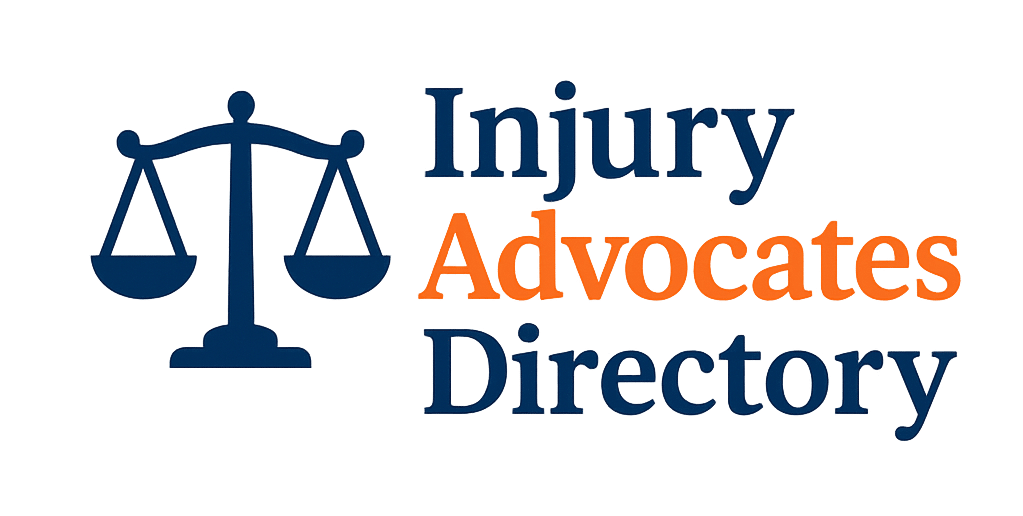Understanding how personal injury lawyers negotiate settlements is crucial for anyone involved in a personal injury case. These legal professionals play a pivotal role in ensuring that clients receive fair compensation for their injuries. With a blend of legal expertise and negotiation skills, they navigate the complexities of the settlement process effectively.
In this article, we will explore the role of personal injury lawyers in negotiating settlements, the factors influencing these negotiations, the strategies they employ, and much more. If you're considering hiring a personal injury lawyer or are simply curious about the process, this guide will provide valuable insights.
Understanding the role of a personal injury lawyer in settlement negotiations
The role of personal injury lawyers in negotiating settlements cannot be overstated. These attorneys serve as advocates for their clients, ensuring their rights are protected throughout the process. One of their primary responsibilities is to gather evidence and assess the full impact of the injury on the victim's life.
A personal injury lawyer will typically begin by collecting all relevant documentation, including medical records, accident reports, and witness statements. This thorough investigation helps establish liability and determine what compensation is warranted. Additionally, they often evaluate damages related to pain and suffering, lost wages, and medical expenses.
Another key aspect of their role is to communicate effectively with insurance companies. They understand the tactics often employed by insurers, such as delaying claims or minimizing payouts. By leveraging their negotiation skills, personal injury lawyers can counter these strategies to secure a fair settlement.
What factors influence settlement negotiations in personal injury cases?
Settlement negotiations in personal injury cases are influenced by various factors. Understanding these can help clients manage their expectations and prepare for the negotiation process.
- Liability: Establishing who is at fault for the accident is crucial. If liability is disputed, it may affect the settlement amount.
- Severity of injuries: The extent of the injuries sustained plays a significant role in determining compensation.
- Medical expenses: Gathering accurate medical bills and documentation is vital, as these costs directly influence the settlement amount.
- Lost wages: If a victim has missed work due to their injuries, this loss can significantly impact the settlement.
- Pain and suffering: Non-economic damages such as emotional distress are also considered during negotiations.
Each of these factors is weighed carefully during negotiations. Additionally, the behavior of the opposing party, including their willingness to negotiate, can also significantly impact the outcome.
How can a personal injury lawyer maximize my settlement offer?
A personal injury lawyer employs several strategies to maximize settlement offers. Their expertise allows them to assess the full value of a claim and negotiate with confidence.
Firstly, they gather comprehensive evidence that can substantiate your claims. This includes medical records, expert witness testimonies, and photographs of the accident scene. Presenting this evidence effectively can persuade insurance companies to offer a higher settlement.
Secondly, personal injury lawyers are adept at crafting demand letters that outline the basis for your claim. A well-prepared demand letter can set a strong foundation for negotiations and often leads to more favorable settlement discussions.
Additionally, patience is a powerful tactic in negotiations. A skilled lawyer understands when to wait for the right offer and when to push back against lowball proposals. By not rushing into an agreement, they can often secure better terms.
What tactics do personal injury lawyers use in negotiation?
Personal injury lawyers utilize various negotiation tactics to achieve the best outcomes for their clients. Here are some common strategies they may employ:
- Evidence presentation: Strong evidence can significantly influence negotiations. Lawyers present medical records, accident reports, and other critical documents that support the claim.
- Objective communication: Maintaining a professional demeanor and communicating clearly can help foster constructive negotiations.
- Walking away: Sometimes, the best tactic is to be willing to walk away from negotiations if the offer is insufficient. This can put pressure on the opposing party to improve their offer.
- Engaging in mediation: In some cases, lawyers may recommend mediation as a means to resolve disputes amicably and efficiently.
By implementing these tactics, personal injury lawyers aim to secure fair settlements that align with their clients' needs.
When should I accept a settlement offer?
Deciding when to accept a settlement offer can be challenging. Personal injury lawyers typically advise clients to consider several factors before making this decision.
Firstly, clients should evaluate whether the offer adequately covers their medical expenses, lost wages, and pain and suffering. If the offer falls short, it may be worth negotiating further.
Secondly, clients should take into account the likelihood of success if the case were to proceed to trial. If the evidence strongly supports their case, it may be beneficial to hold out for a better offer.
Lastly, it's essential to consider the timeline for receiving compensation. Settlements are often quicker than pursuing a trial, which can prolong the process. Clients should weigh their immediate needs against potential long-term gains.
What are the key steps in the settlement negotiation process?
The settlement negotiation process involves several key steps. Understanding these steps can help clients navigate the process more effectively.
1. Initial assessment: This involves the lawyer evaluating the case, gathering evidence, and determining the potential value of the claim.
2. Demand letter: The lawyer drafts and sends a demand letter to the insurance company or opposing party, outlining the claim and requesting a specific amount.
3. Negotiation: Following the demand letter, the negotiation process begins. This may involve back-and-forth discussions, counteroffers, and adjustments to the claim amount.
4. Agreement: Once both parties arrive at a mutually acceptable settlement amount, a formal agreement is drafted and signed.
5. Finalization: The final step includes ensuring that all legal documentation is in order and that the agreed payment terms are met.
Understanding these steps can empower clients to actively participate in their negotiations and make informed decisions.
How long do settlement negotiations typically take?
The duration of settlement negotiations can vary widely depending on several factors. Generally, negotiations can take anywhere from a few weeks to several months.
Factors that influence this timeline include:
- Complexity of the case: More complex cases that involve significant injuries or multiple parties may take longer to resolve.
- Insurance company response: The responsiveness and willingness of the insurance company to negotiate can also impact the length of negotiations.
- Evidence gathering: If additional time is needed to gather evidence, this can extend the negotiation period.
While it's essential to strive for a fair settlement, clients should also be prepared for the possibility of extended negotiations, especially if the case is particularly complex.
Frequently Asked Questions about personal injury settlements
How do lawyers negotiate personal injury settlements?
Lawyers negotiate personal injury settlements by presenting a strong case that includes evidence such as medical records, witness statements, and expert opinions. They communicate directly with insurance companies, advocating for the best possible outcome for their clients. Throughout the negotiation process, they leverage their experience to counter offers and push for fair compensation.
Will I get more settlement money with a personal injury lawyer?
Hiring a personal injury lawyer often results in higher settlement amounts. Lawyers understand the nuances of the law and the negotiation process, which enables them to effectively advocate for their clients. Studies have shown that individuals represented by legal counsel generally receive higher settlements than those who negotiate on their own.
Why do lawyers often try to negotiate a settlement?
Lawyers often try to negotiate a settlement to avoid the time, expense, and uncertainty of a trial. A negotiated settlement allows for a quicker resolution and ensures clients receive compensation without the risks associated with going to court. Additionally, settling outside of court often results in less emotional stress for clients.
What is the role of a personal injury lawyer?
The role of a personal injury lawyer is to represent clients who have been injured due to the negligence of others. They provide legal guidance, gather and present evidence, negotiate settlements, and advocate for their clients' best interests. Their ultimate goal is to secure fair compensation for medical costs, lost wages, and pain and suffering.

